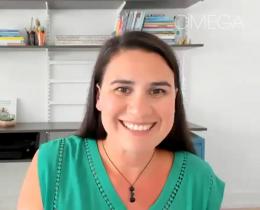Omega: Can the Tools help you get your tween or teen to do something, like clean up their room or do their homework?
Barry: Adolescence is where the rubber meets the road. Adolescents are devoted to defying your authority because they’re establishing their own autonomy. If we want to have an impact as parents, we need to work on ourselves and learn how to communicate credibly. If you express yourself in the most authentic way possible, your kids will feel that, and there’s a chance they’ll listen because they won’t feel like they’re being controlled. They may never acknowledge that they’re listening, but you’re planting a seed that might grow.
I'm not saying this makes adolescence easy, but it makes parenting an adolescent at least a little bit more effective because the emphasis is on you and the vibe you’re giving out. If you give out a controlling vibe, he or she will rebel against you.
Phil: If you want to control your kids, good luck. If you want to try to inspire them, you have to get in there and actually do the work.
Omega: Can you give an example of how doing your own work influences your kids?
Barry: I'm a fairly avoidant person, and I don’t like to write. While writing our first book, I worked with the Reversal of Desire Tool, which is designed to overcome avoidance. When my kids were adolescents, I found that when I was working that Tool all day, every day, I would come home and their rooms were cleaned up, they were helping out with dinner, and they were just generally more cooperative.
When I wasn't using the Tool, everything was a mess. It was complete chaos, with everybody yelling at each other. It has to do with field theory—the idea that the energy we give out as an individual impacts our environment. It was more about me using the Tool than it was about me yelling at them to clean up their room.
Omega: Can kids use the Tools, too?
Phil: While I’m not a child therapist, I’ve heard so much from parents who use the Tools or teach their kids the Tools. Kids don’t care about theory. They don’t even care about their problems. But they do care about results, and they know when they feel better and more confident. They know when they can control themselves better and when they feel connected to their friends.
What I’ve found is when you’re teaching a Tool to a kid who’s 11 or 12 and up, you don’t have to reference the problem or even the specific Tool. One of my patients has a daughter who is a great athlete, but she doesn't really train hard or push herself. He didn't tell her there's anything wrong with that, he just said, “If you want to keep up with your friends and feel connected, try this,” and that was enough.





